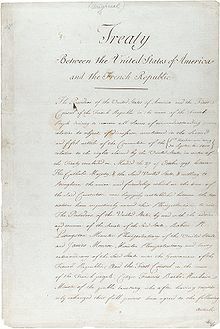“Punting the Pundits” is an Open Thread. It is a selection of editorials and opinions from around the news medium and the internet blogs. The intent is to provide a forum for your reactions and opinions, not just to the opinions presented, but to what ever you find important.
Thanks to ek hornbeck, click on the link and you can access all the past “Punting the Pundits”.
The Sunday Talking Heads:
This Week with Christiane Amanpour: It’ll be the SALT Treaty, Obama’s Afghanistan strategy and the impasse in funding the government with Sen John Kerry (D-MA) and Sen. Richard Lugar, (R-IN).
The Round Table guests, George Will, Democratic political strategist Donna Brazile, Reuters Editor at Large Chrystia Freeland and Rajiv Chandrasekaran of the Washington Post will look at the meaning of progress in the Afghanistan war. And Amanpour takes a special look back at her time covering Ambassador Richard Holbrooke.
Face the Nation with Bob Schieffer: Mr. Schieffer’s guests will be Sen. Lindsey Graham, (R-SC), Armed Services Committee Member, Sen. Carl Levin, (D-MI), Armed Services Committee Chair, Sen. Amy Klobuchar, (D-MN) and Sen. Jeff Sessions, (R-AL). They will discuss the recently released Afghanistan report and what’s ahead in 2011.
The Chris Matthews Show: Chris, aka “Tweety”, will be joined by , Andrea Mitchell, NBC News Chief Foreign Affairs Correspondent, Michael Duffy, TIME Magazine
Assistant Managing Editor, Helene Cooper, The New York Times White House Correspondent and Andrew Sullivan, The Atlantic Senior Editor. They will discuss:
Did Barack Obama Get Back on the Right Track This Week? and Top Ten Political Gaffes of the Year.
Yeah, Obama’s on the “right track” alright.
Meet the Press with David Gregory: “LUrch” will have as his exclusive guest Vice President Joe Biden who will no doubt lie about how great the Obama tax cuts are and how the left should suck it up and vote for Obama in 2012.
The Round Table will include the Mayor of Newark, New Jersey, Cory Booker (D), Republican Strategist and Founding Leader of No Labels, an organization devoted to decreasing hyperpartisanship, Mark McKinnon, NBC News Chief Foreign Affairs Correspondent Andrea Mitchell, and the Host of MSNBC’s “Morning Joe”, Joe Scarborough.
Andrea’s getting around this morning
State of the Union with Candy Crowley: The President signs a key tax cut plan into law after a contentious debate in Congress with his own party. What are the chances for bipartisanship that got this legislation passed can possibly carry on to the next session? We’ll talk to Republican Senate Minority Leader Mitch McConnell, (aka the Human Hybrid Turtle) on his party’s agenda.
Then shifting focus abroad to the progress in the War in Afghanistan… where do we go from here and what are the prospects for country’s future? Candy sits down with former Ambassador Zalmay Khalilzad, former CENTCOM commander Adm. William Fallon (Ret.) and former Joint Chiefs Chairman Gen. Richard Myers (Ret.)
And we’ll break down the week in politics with A.B. Stoddard from The Hill Newspaper and Matt Bai from The New York Times.
I have it good authority that Matt Bai is an idiot
Fareed Zakaris: GPS: Remembering Richard Holbrooke, the man that Fareed calls “maybe the most important American diplomat of the last two decades.” A great GPS panel will discuss what makes a great diplomat…and what’s the way forward in Afghanistan and Pakistan after Ambassador Holbrooke.
Also, Fareed’s take on the President’s recent Afghanistan review and the challenges that lie ahead for the United States and its allies in the region.
Britain’s austerity measures have sparked protests and violence. Fareed sits down with the architect of the austerity, Britain’s Chancellor of the Exchequer, George Osborne.
And then for the other side of the story, former Prime Minister Gordon Brown, who also served as the U.K.’s finance minister, tells Fareed why he thinks the budget cuts are the wrong move.
Also, what in the world? Why are China and Russia renouncing the almighty American dollar?
And finally a last look at the Pentagon powered by…a Playstation?



 On this day in 1803,
On this day in 1803, 

 Welcome to the Stars Hollow Health and Fitness weekly diary. It will publish on Saturday afternoon and be open for discussion about health related issues including diet, exercise, health and health care issues, as well as, tips on what you can do when there is a medical emergency. Also an opportunity to share and exchange your favorite healthy recipes.
Welcome to the Stars Hollow Health and Fitness weekly diary. It will publish on Saturday afternoon and be open for discussion about health related issues including diet, exercise, health and health care issues, as well as, tips on what you can do when there is a medical emergency. Also an opportunity to share and exchange your favorite healthy recipes. 
Recent Comments